Mount Pantokrator is the highest mountain in Corfu. Its in the north eastern tip of Corfu and is about a kilometre in height. So what does Pantokrator mean? Pantokrator is a translation of one of the names of God in Judaism. It means Almighty or all powerful. Another perspective on this is from christian iconography where statues or paintings of Christ is shown with the bible in the left and blessing with the right. Like so:
 This is from St. Catherine’s Monastery on Mount Sinai, where I will go one day. Anyway, back to Mount Pantokrator, the God Mountain.
This is from St. Catherine’s Monastery on Mount Sinai, where I will go one day. Anyway, back to Mount Pantokrator, the God Mountain.
Anyway, after parking the car, we start walking up.
There is a little cafe just in front of the monastery. 
Looking back at that excrescence of a communications station. 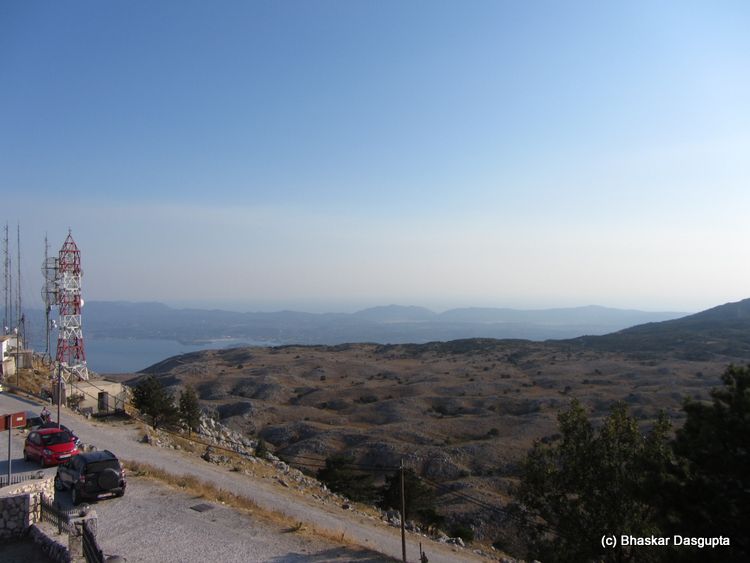
Panning right over the south and south western side of Corfu. 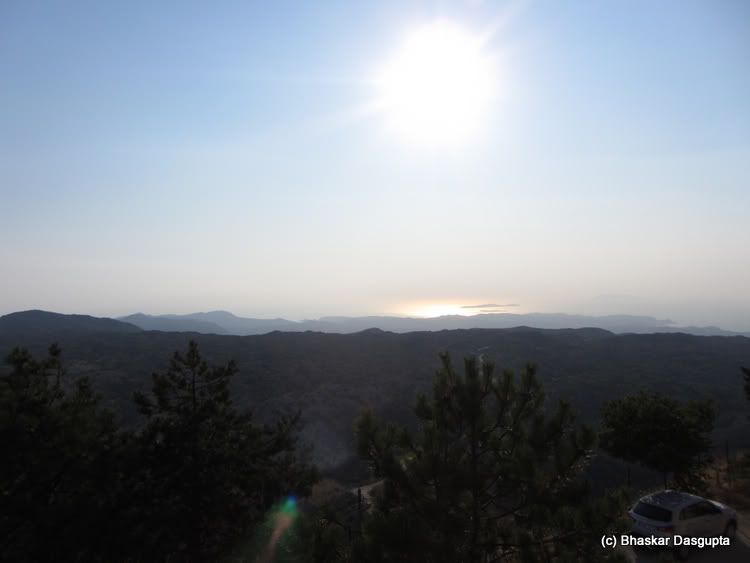
And now peering directly due west. Can you see Italy in the dim horizon? 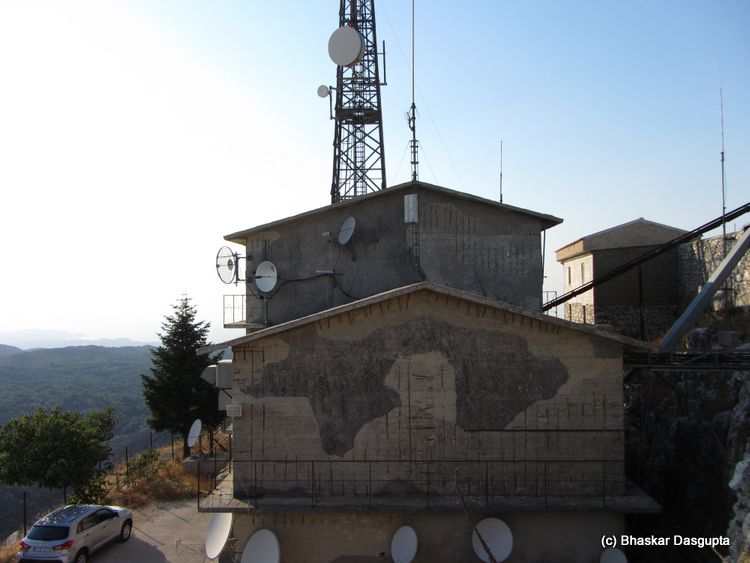
And then the stupid giant antenna structure. 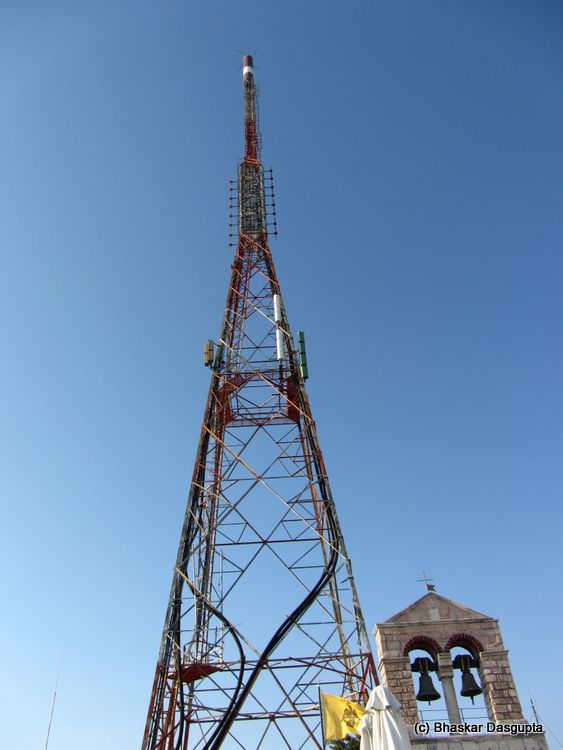
And this this this disgusting thing. 
That’s Albania on the other side of the channel. 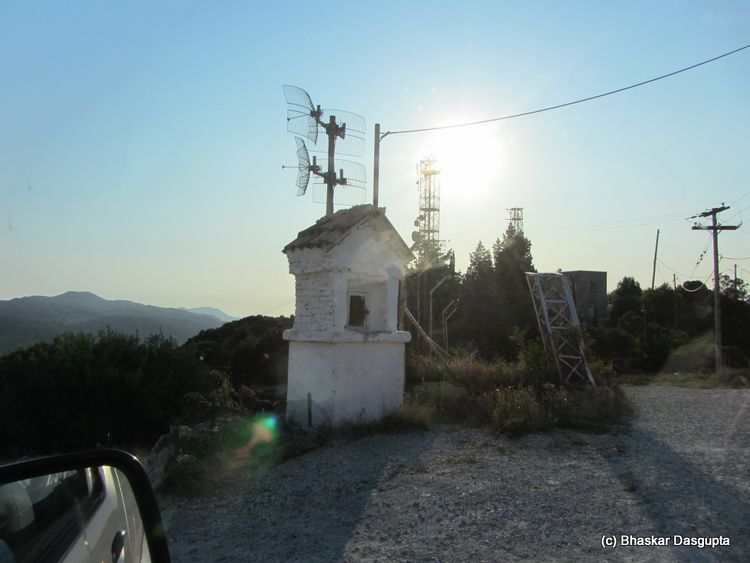
And they have installed two radar dishes on top of a shrine. sighs. 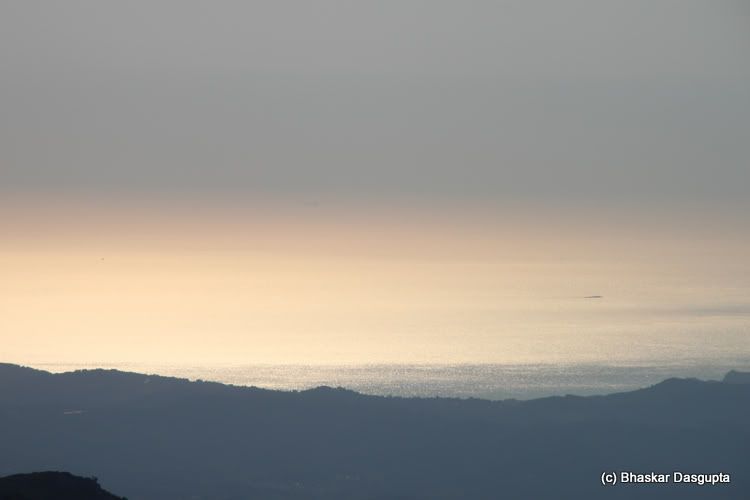
Zooming into the sea. Can you see the thin line which represents Italy. 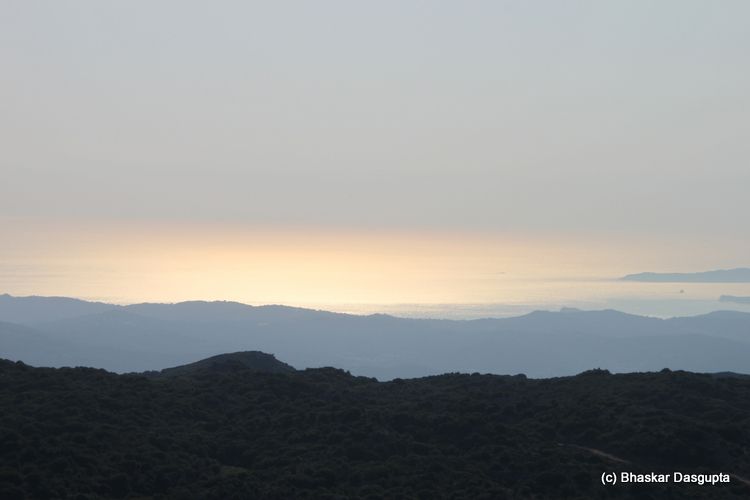
The sides of the monastery are perched on top of a steep slope.
Now some views of the eastern side of the island. 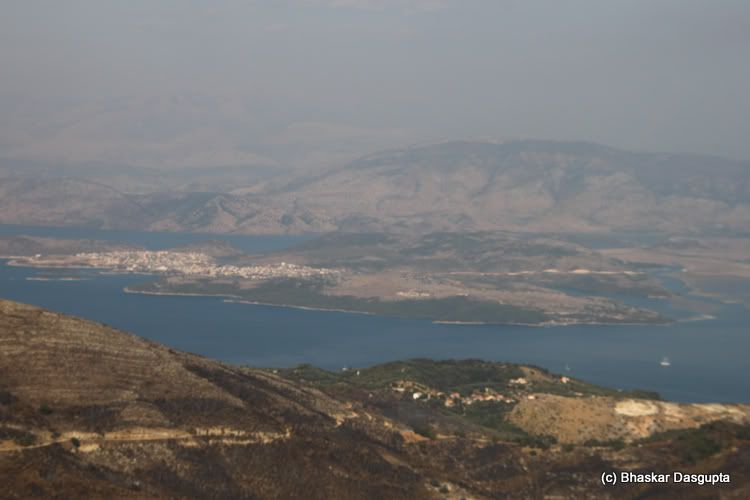
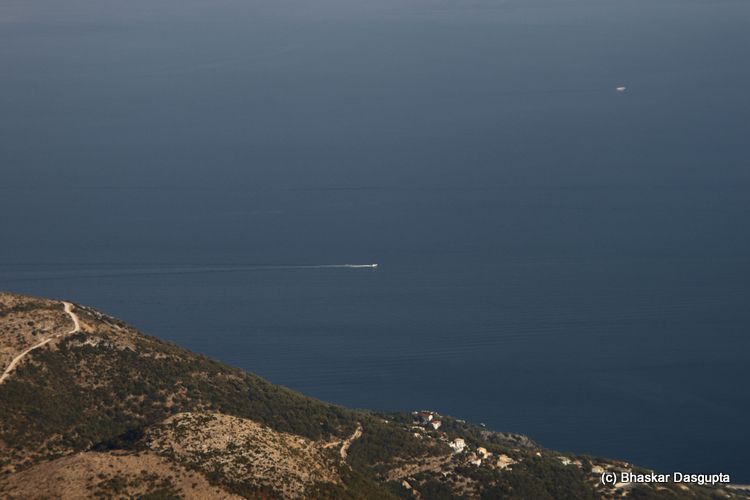
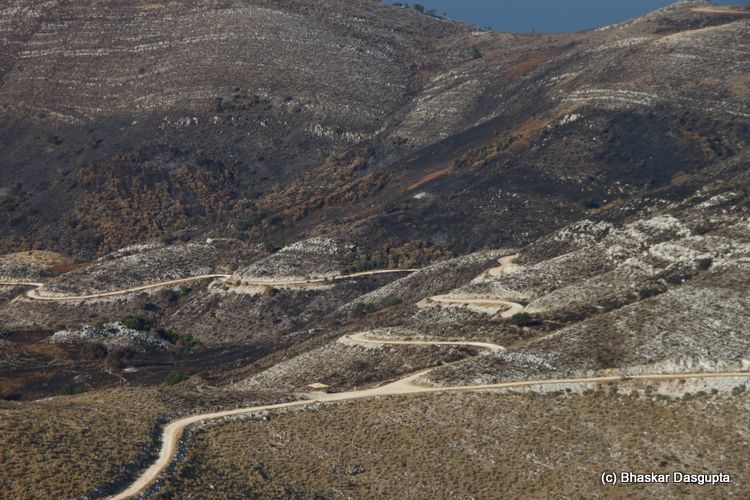
Looks like there has been a forest fire here. 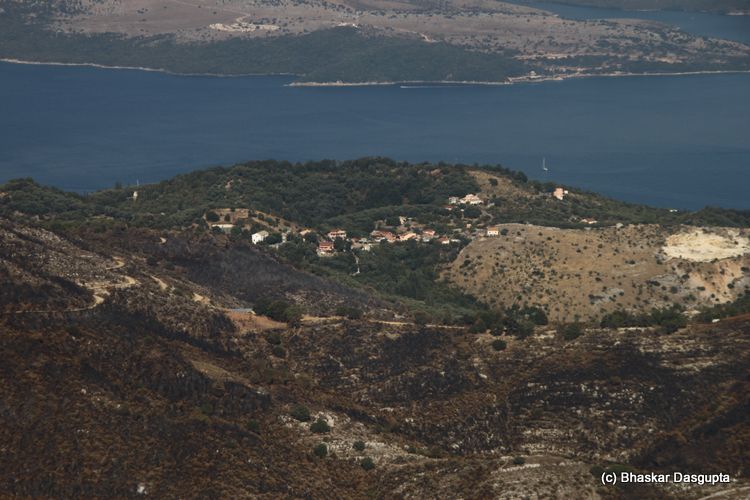
We keep on walking up to the monastery of Ipsilos Pantocrator. 
And then see the stupid stupid legs. The first monastery on the side was built way back in 1347 but was destroyed around 1537. Then this one was built in 1689 and the facade was erected in the 19th century. 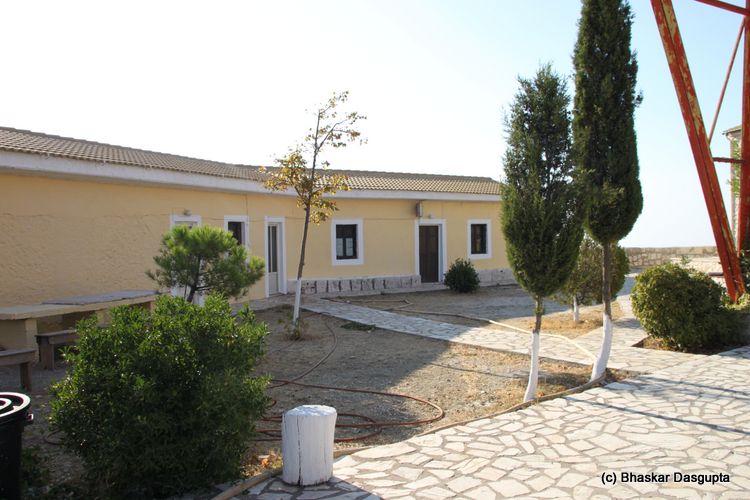
The usual sand pits where you can light votive candles. 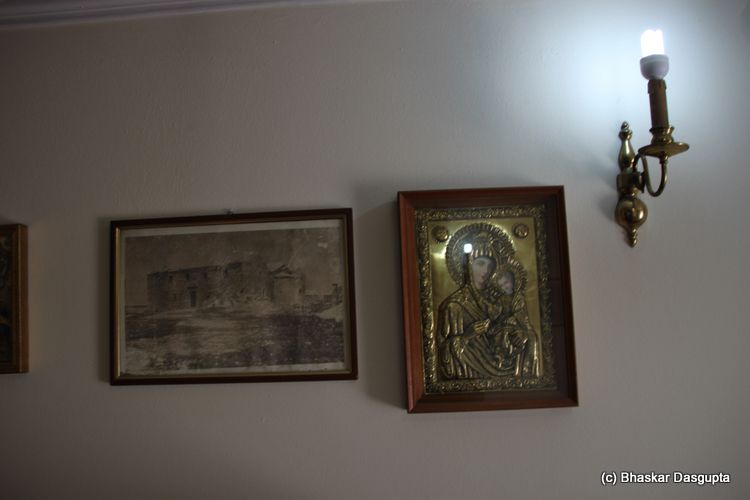
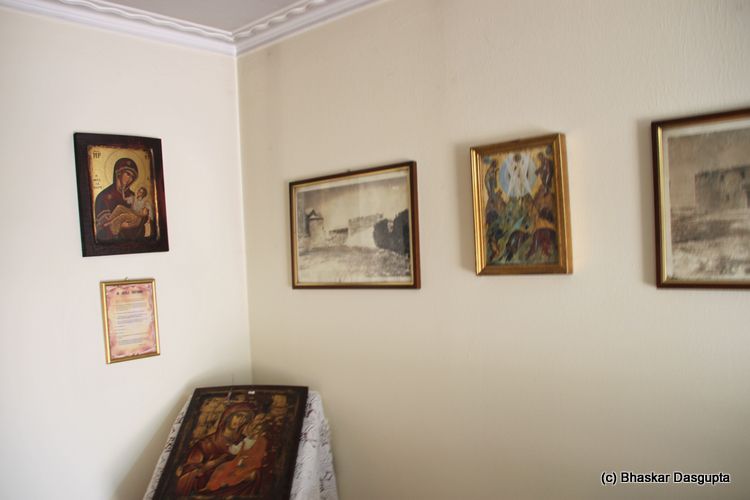
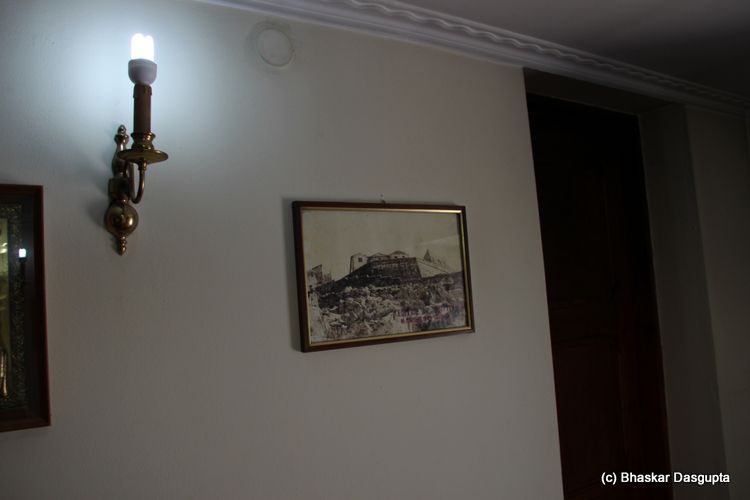
The room has various photographs and icons. 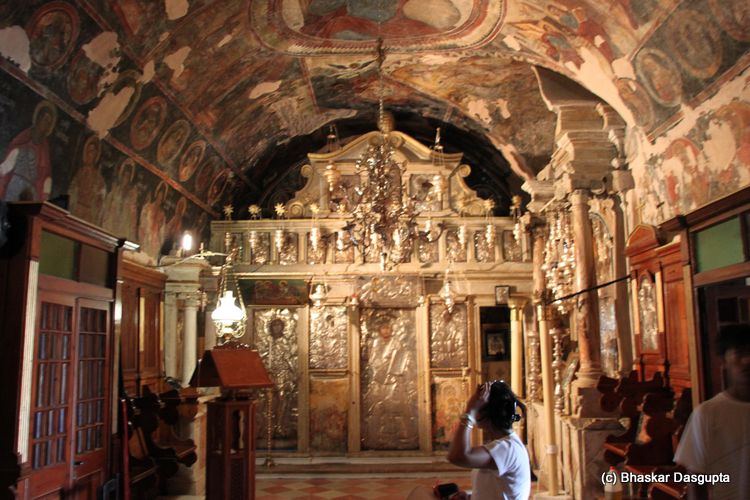
Inside is an incredibly old hall. 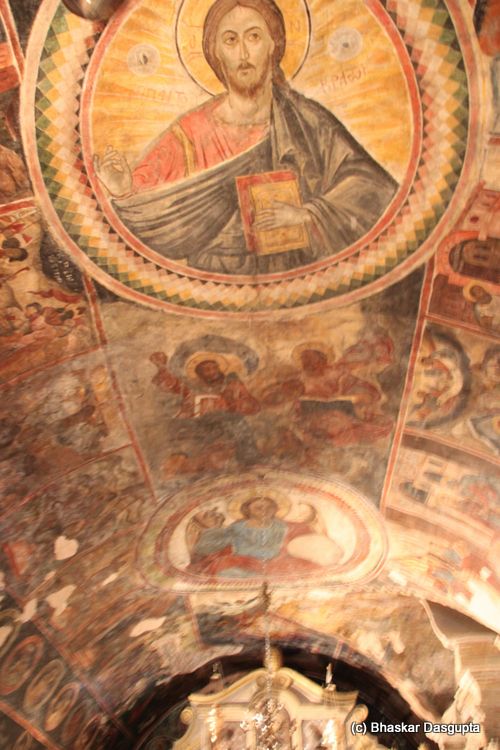
There you go, Christ Pantokrator, with the bible on the left hand and the right hand blessing / teaching. 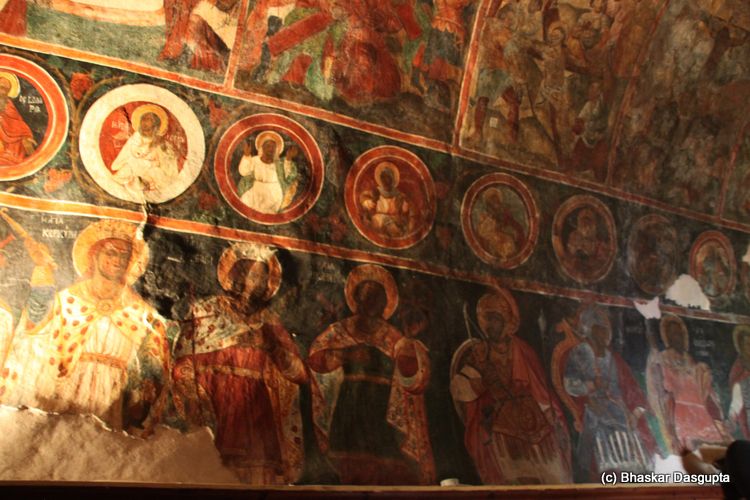
On the walls, you have these murals, much of it is now darkened and in many places damaged, of various saints and kings. 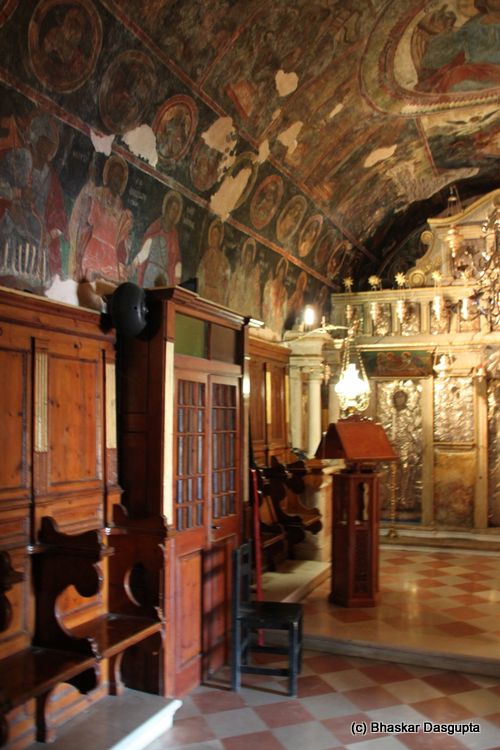
With some olive wood cupboards. 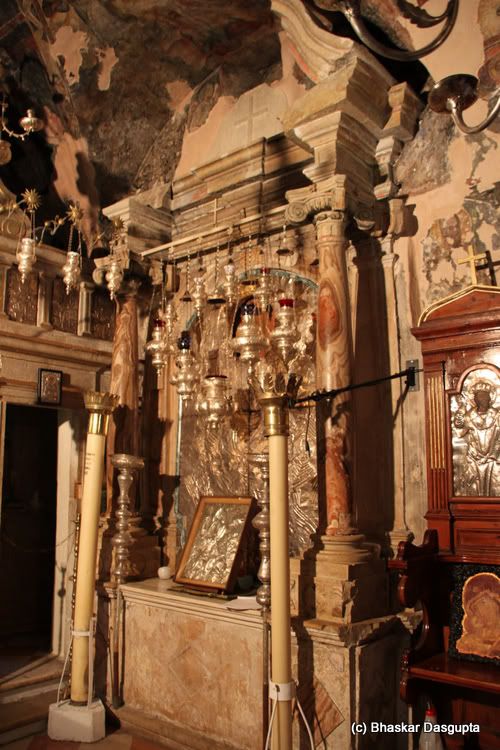
A shrine on the right hand side. 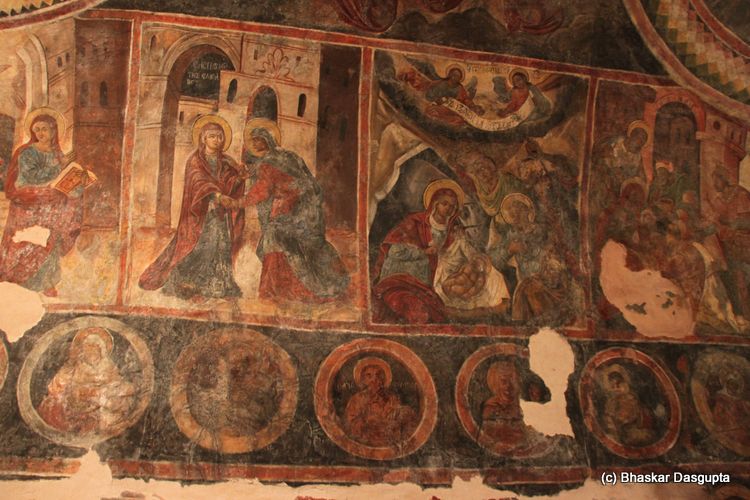
Some images from the bible has been painted on the walls. 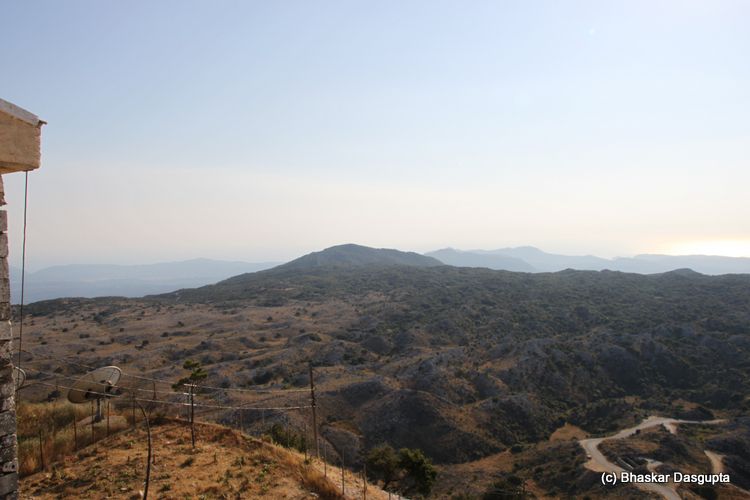
We come out of the church and then start walking around it. Viewing the South of the island.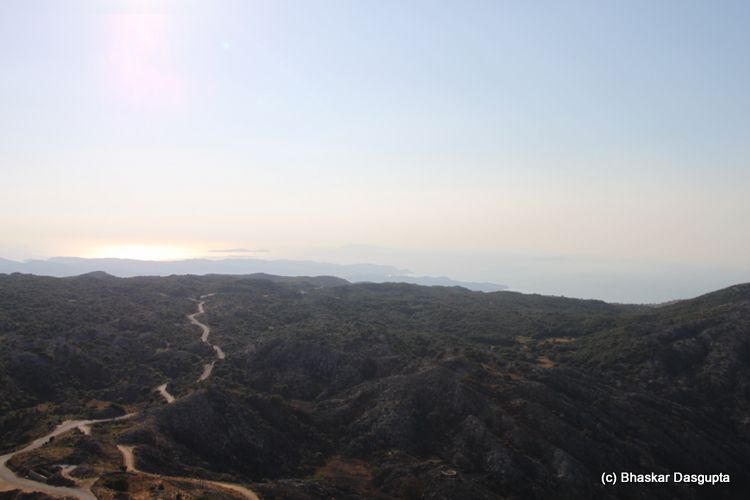
a wide passage way surrounds the church. 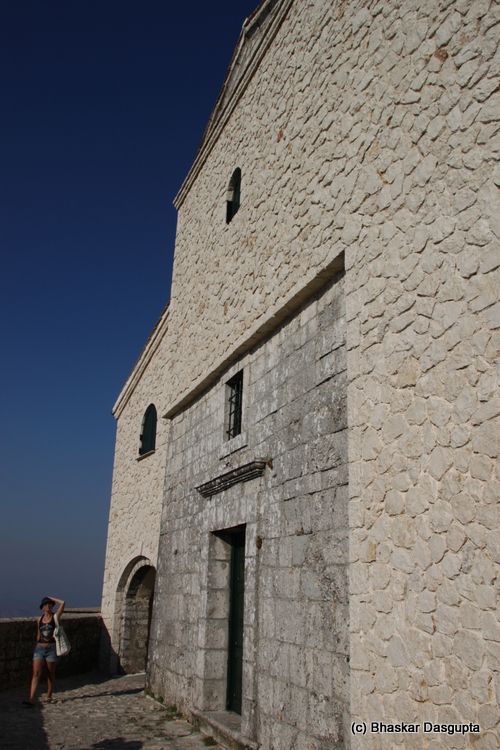
Looks like the walls have been recently improved and rebuilt. 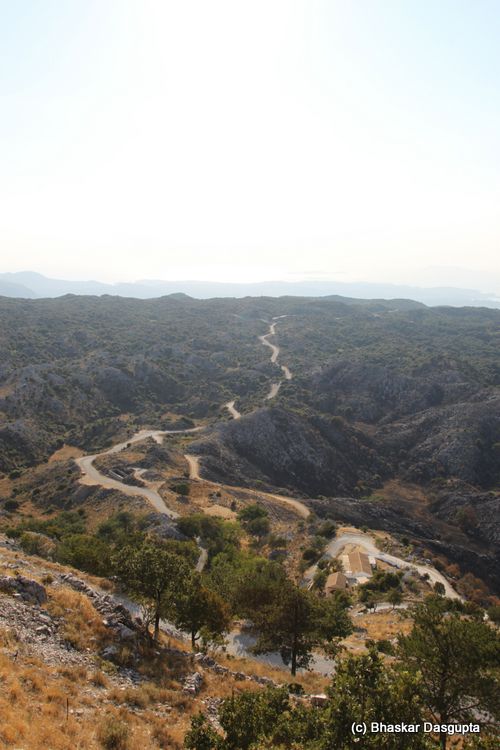
the winding road to the mountain. 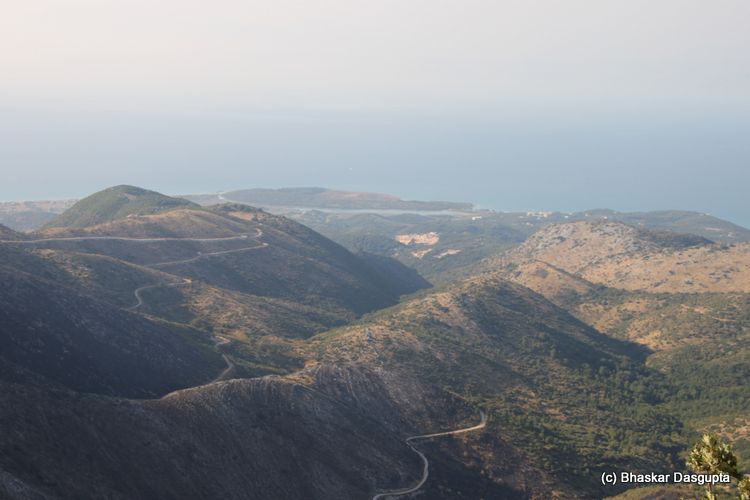
A covered storage area. 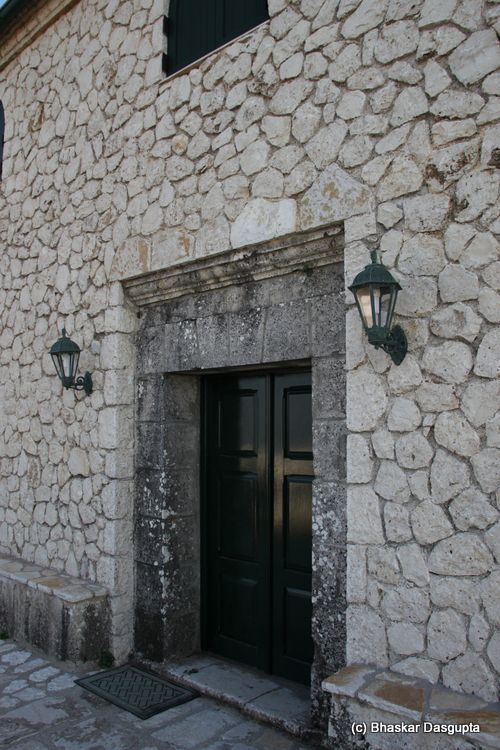
A doorway. 
Now we are on the other side of the church, the estern side. 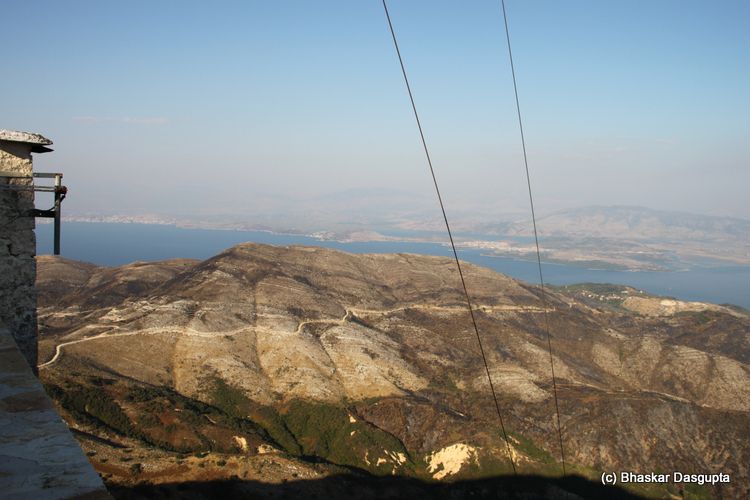
Two wires lead down into the valley. 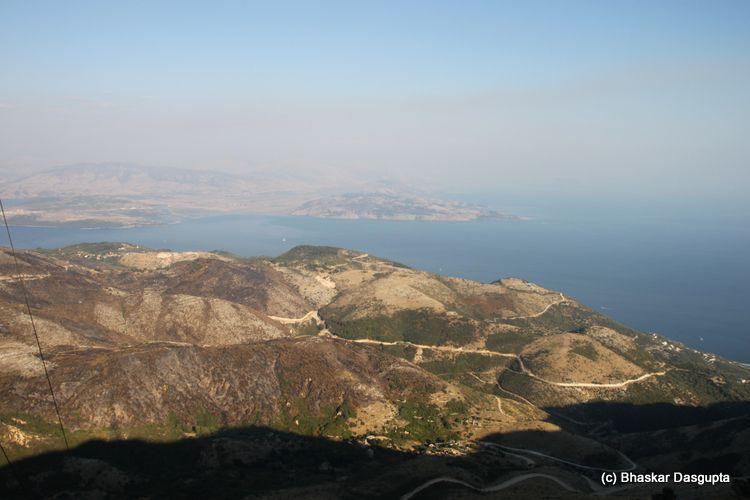
Viewing the communications centre. 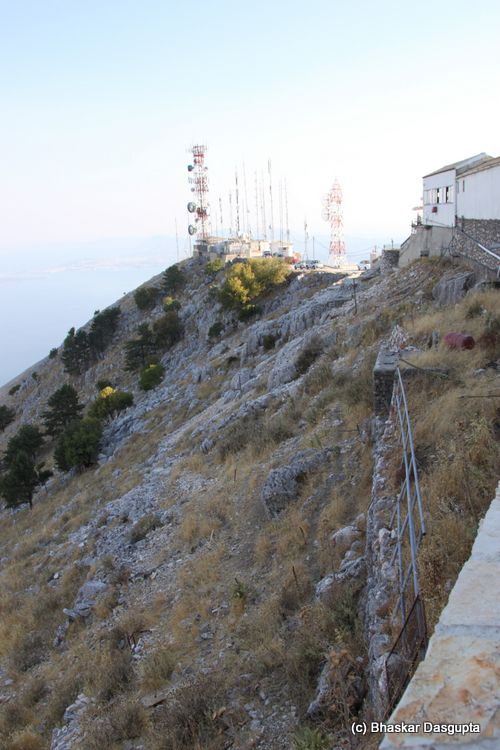
Craggy side of the mountain.
The road is winding around drunkenly. 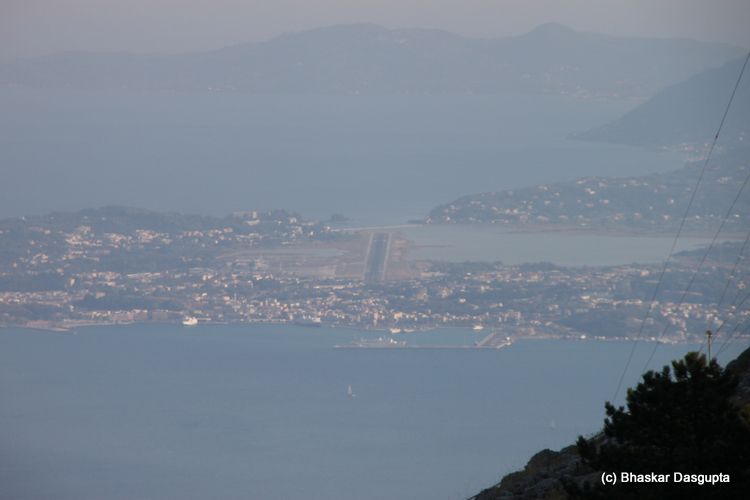
The girls looking over the ledge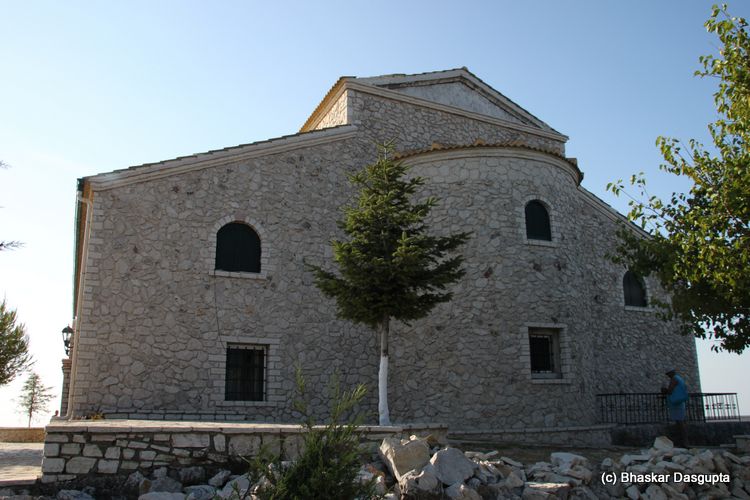
Some graves on the side of the church. 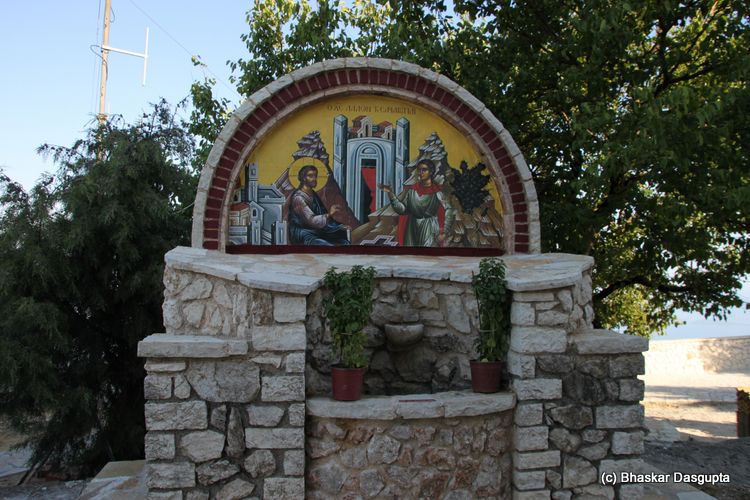
I guess this fountain is a sort of shrine as well. 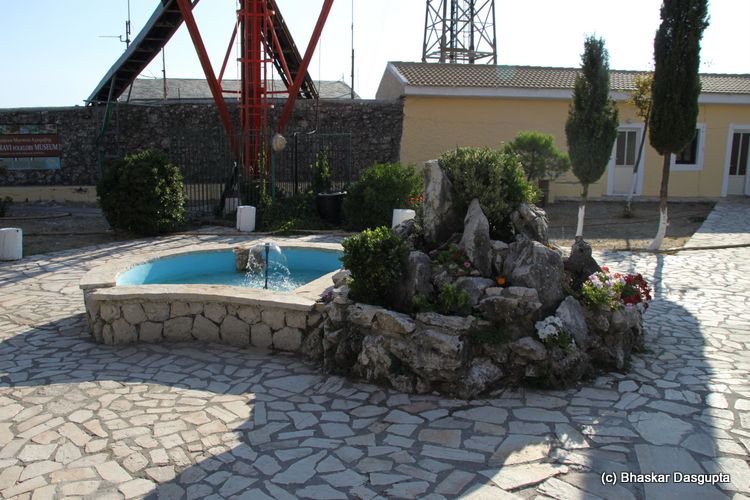
The little fountain in the middle has a lovely rockery as well. On the right of the fountain is a small tiny shop. 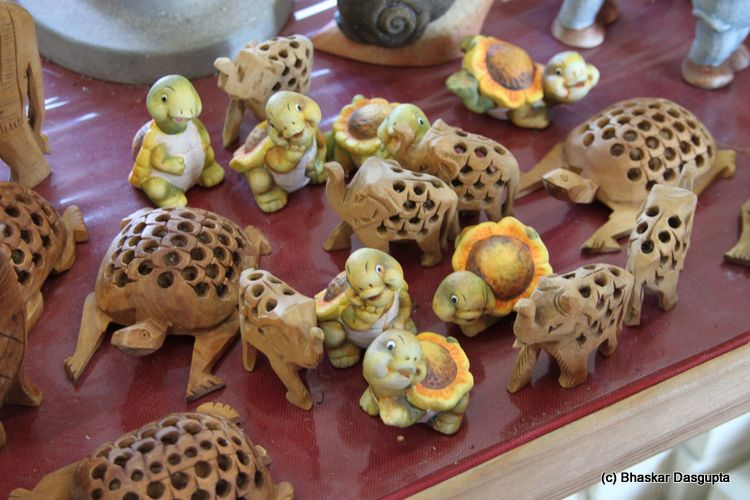
That’s Gouvia Bay, our hotel is on the right hand side of the bay. On the left hand side of the bay is a giant marina.
The sun is setting and I wanted to get away before the sun set, I didnt want to tackle the road in the night, the car wasnt that good, the brakes were a bit dodgy. Here are some of the photographs of the sunset. 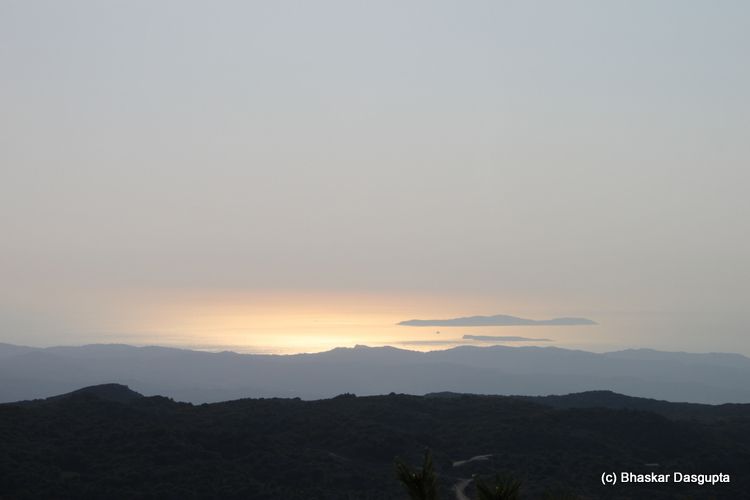
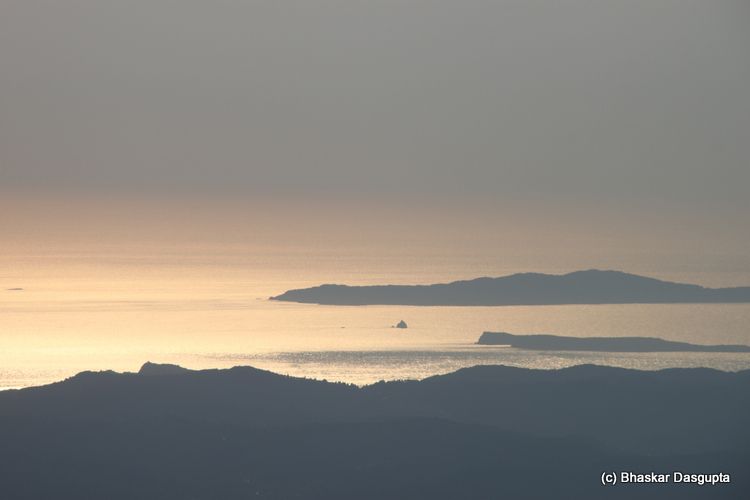
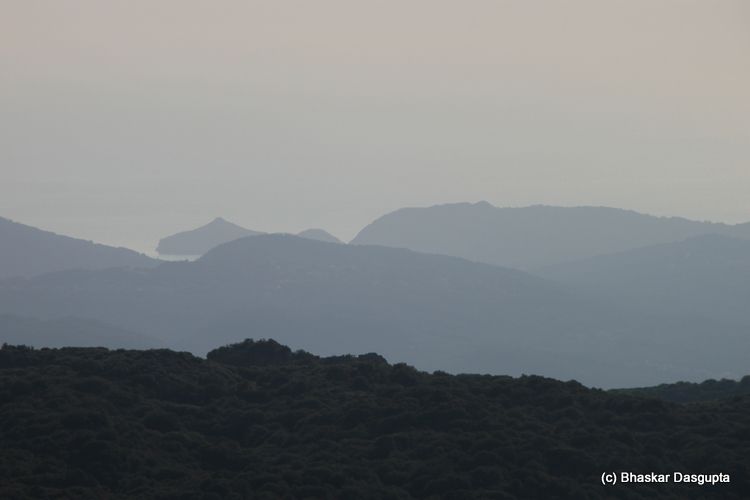
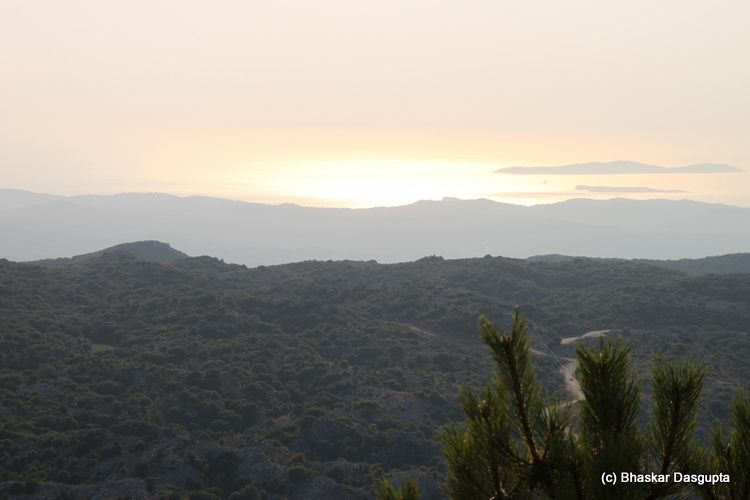
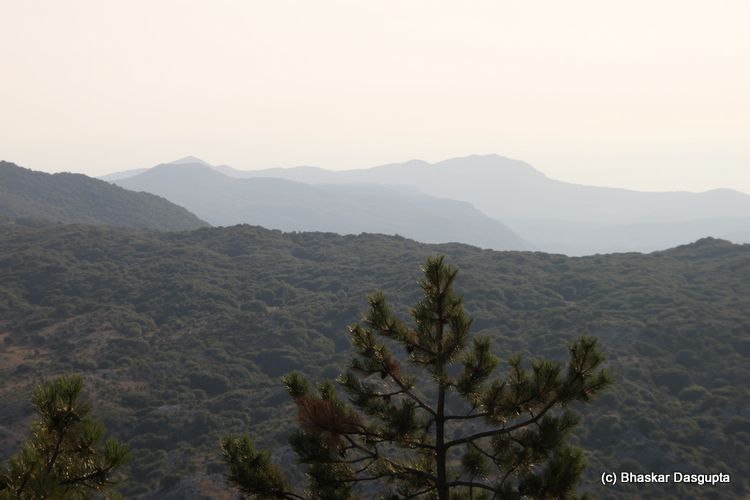
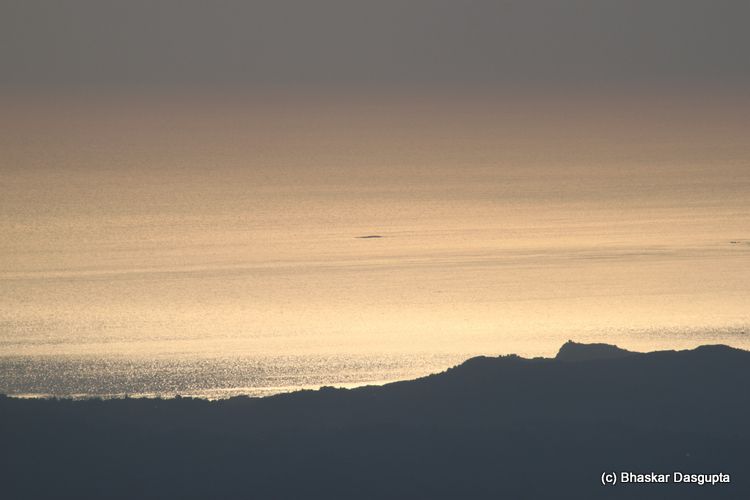
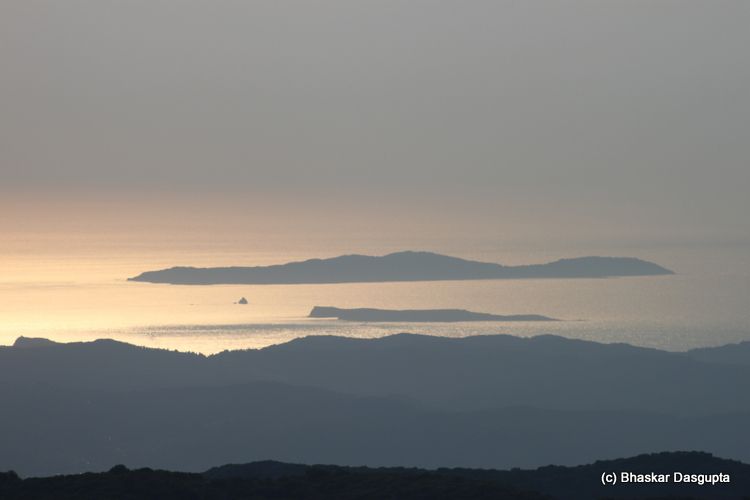
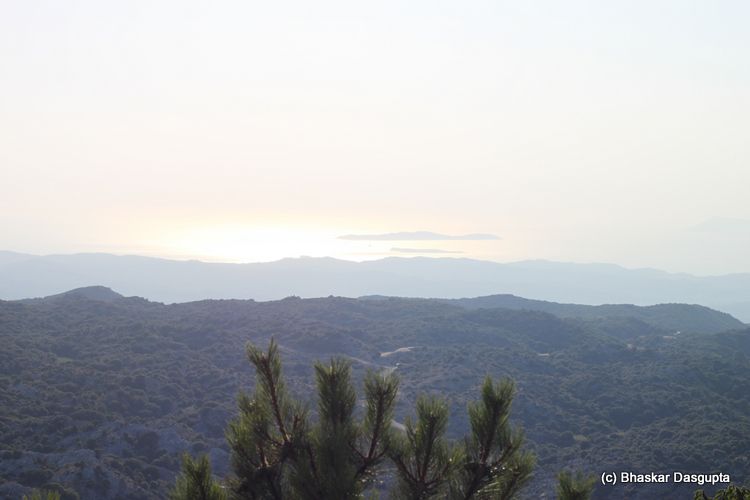
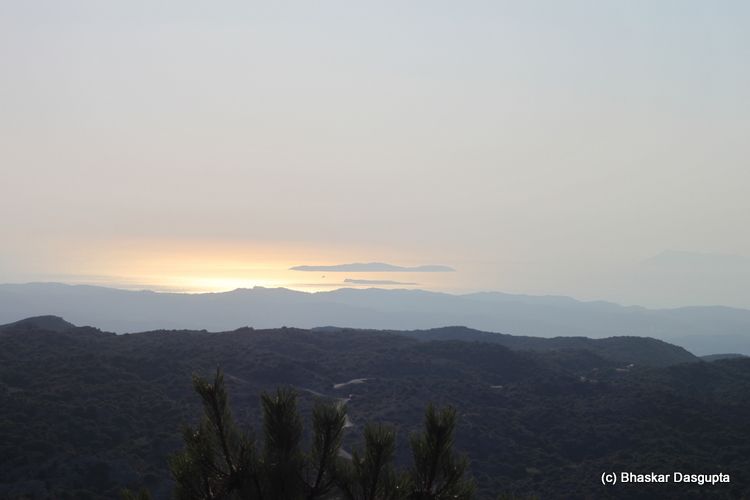
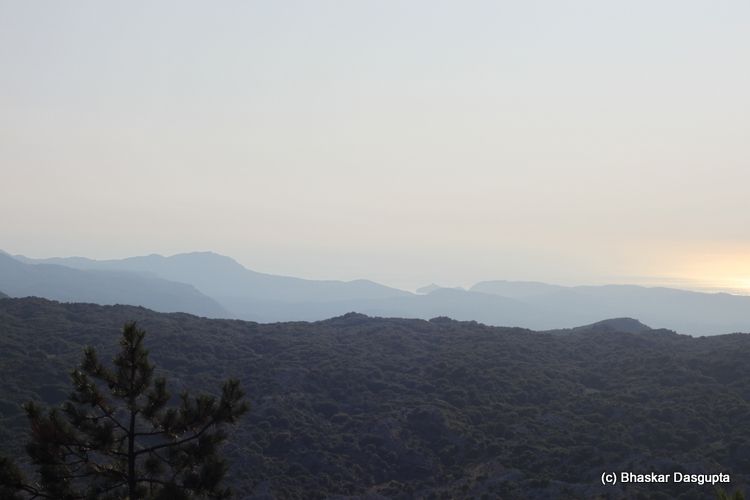
That’s it, we jumped into the car and drove back to the hotel. This was the penultimate day, the next day we lazed around in the hotel, played in the pool and sea and then came back.
While I was disappointed that I wasnt able to find any sign of Gerald Durrell and his life in Corfu (nothing, there is nothing at all), but I could recognise his descriptions. The lazy life in Corfu, the animal life, the bright sunshine, the olive groves. Wonderful, I loved it. Its good, but not good enough to come back here again.
Kalispera Corfu.

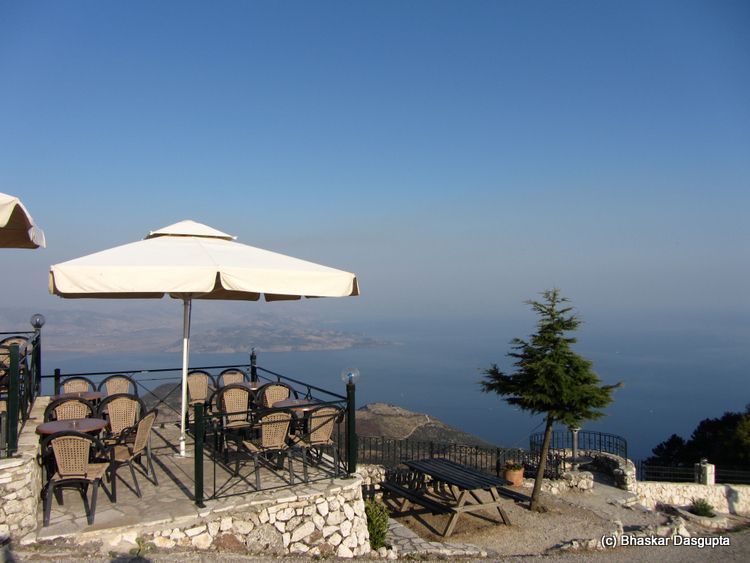

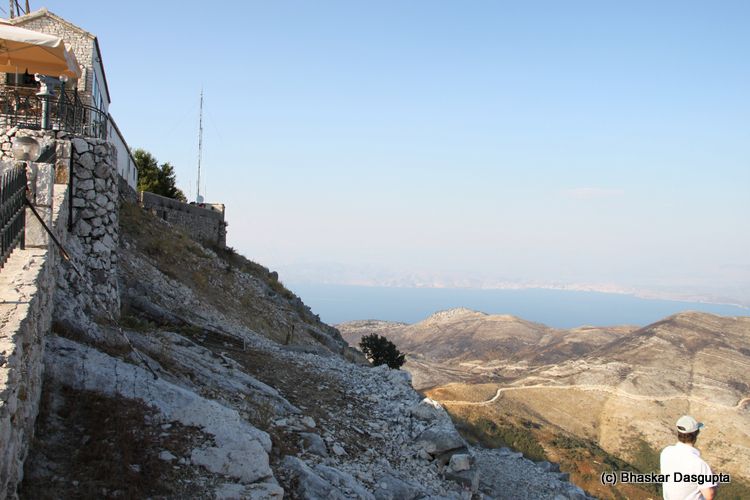

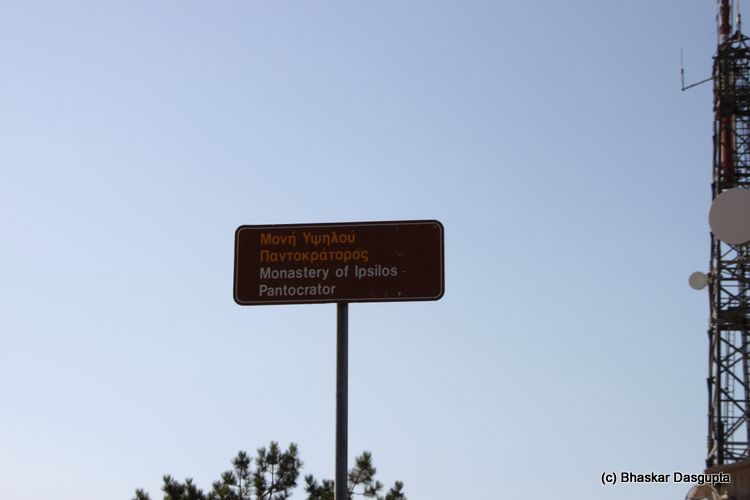

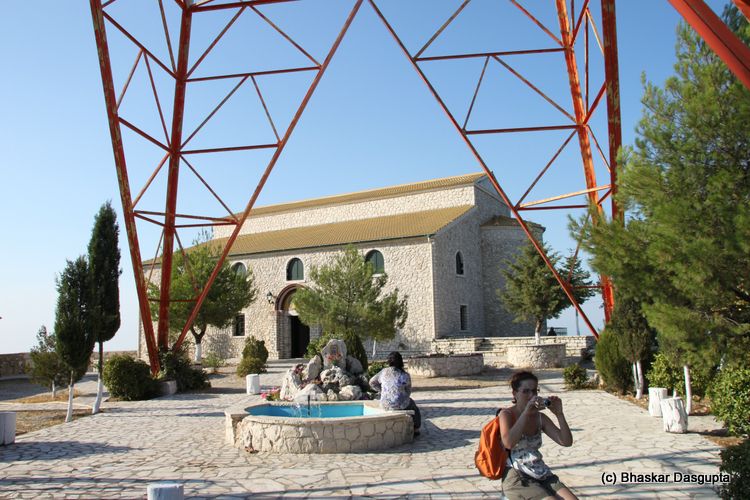
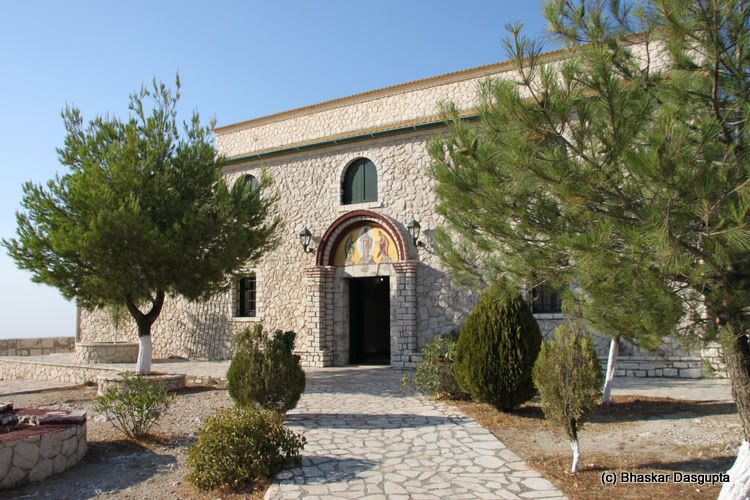
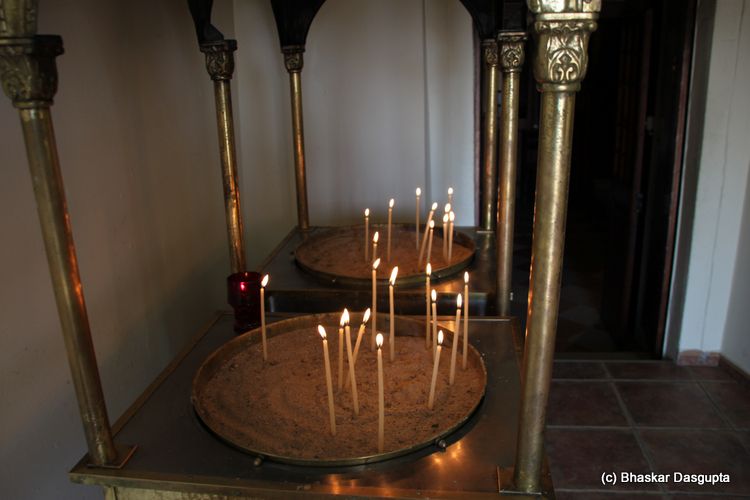

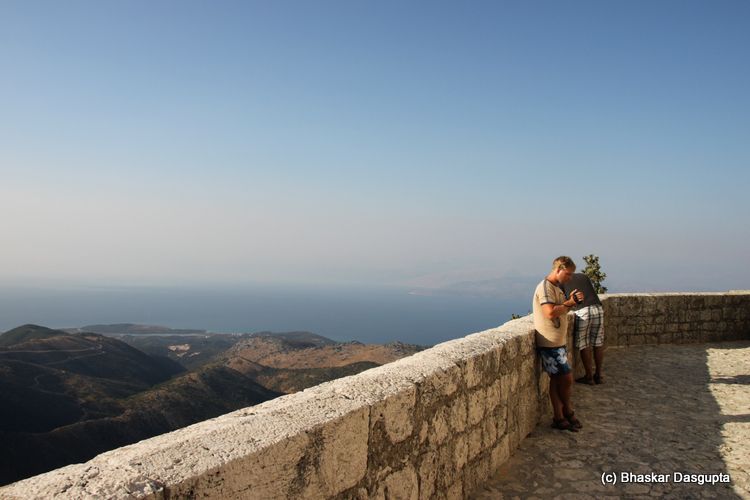
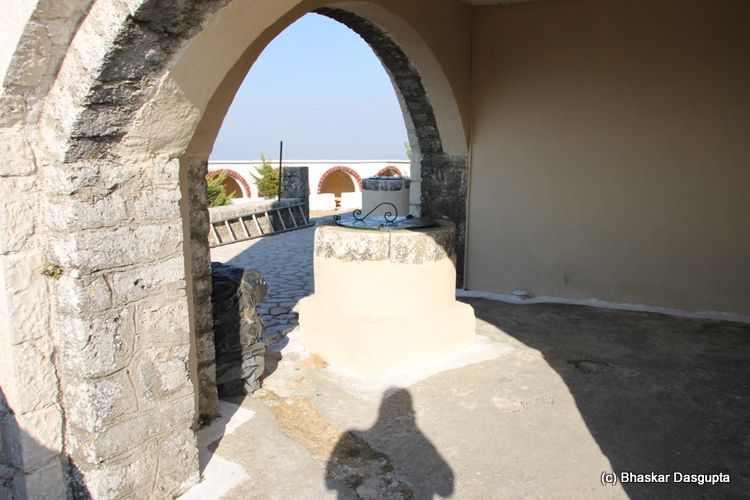
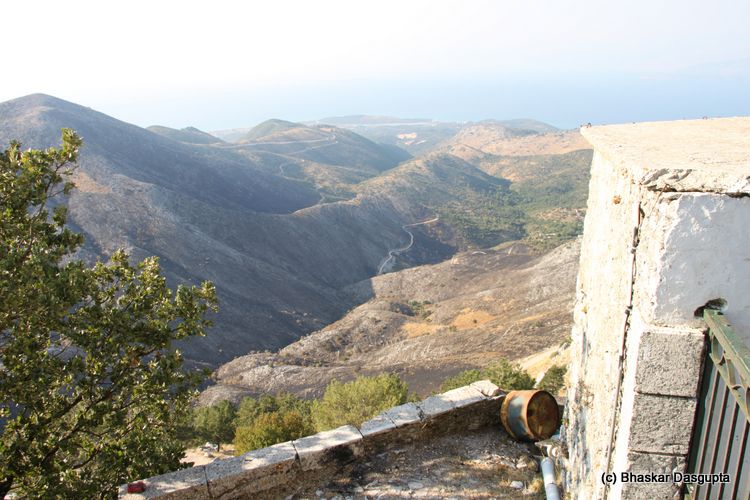
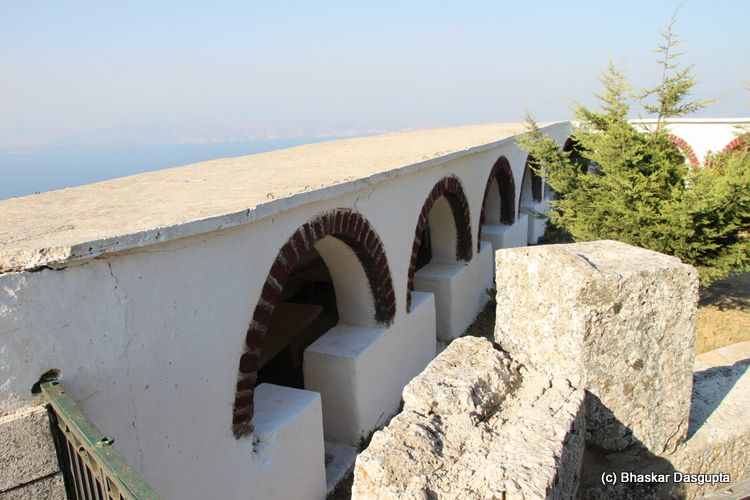

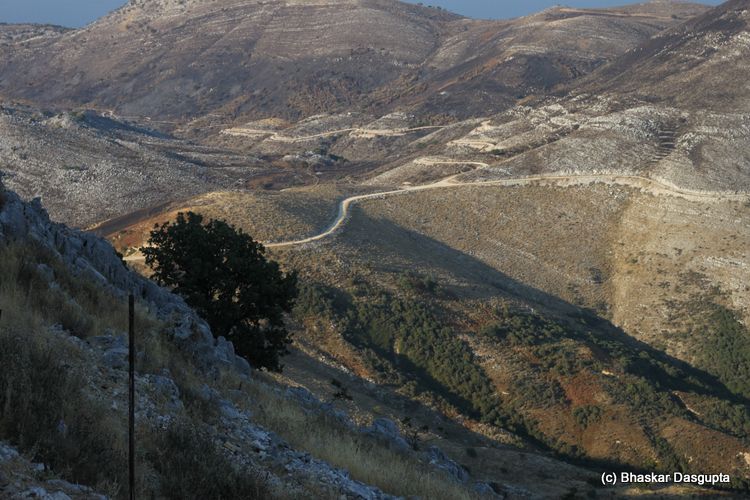
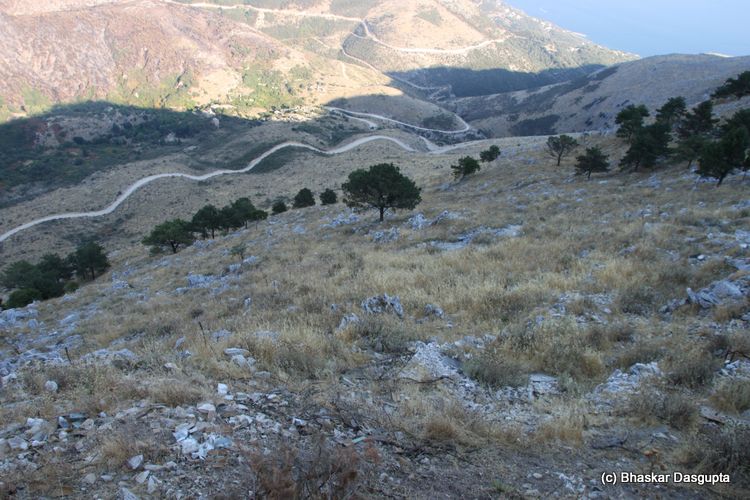
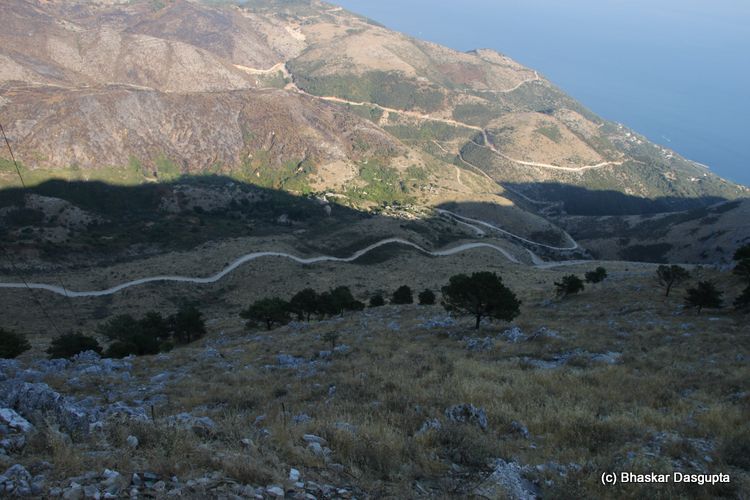
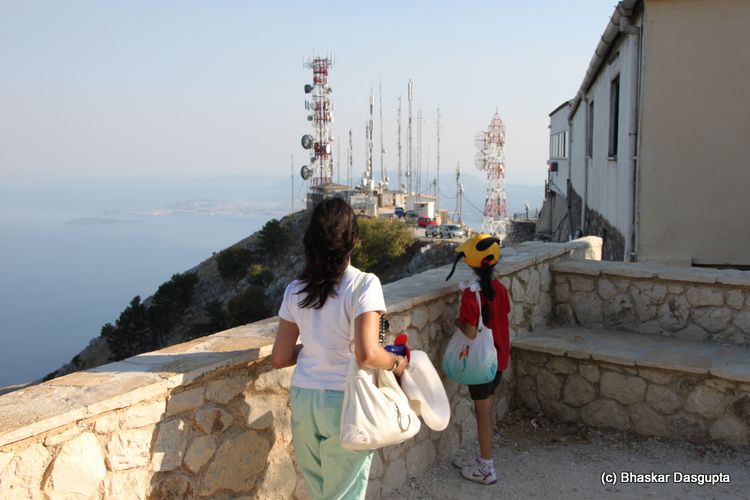
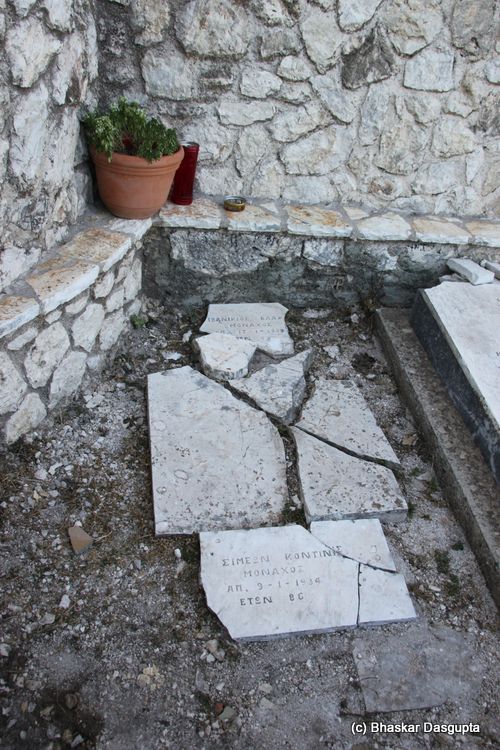
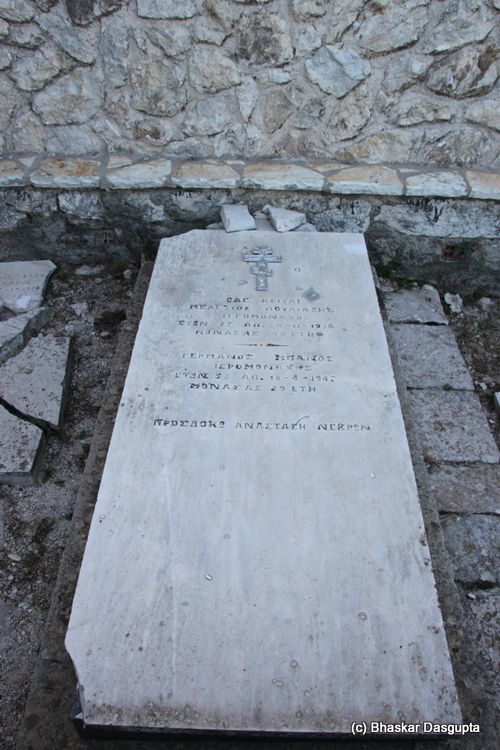
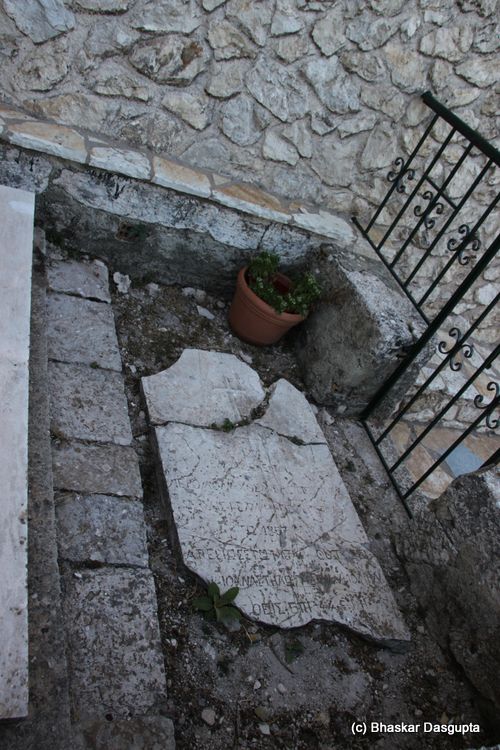
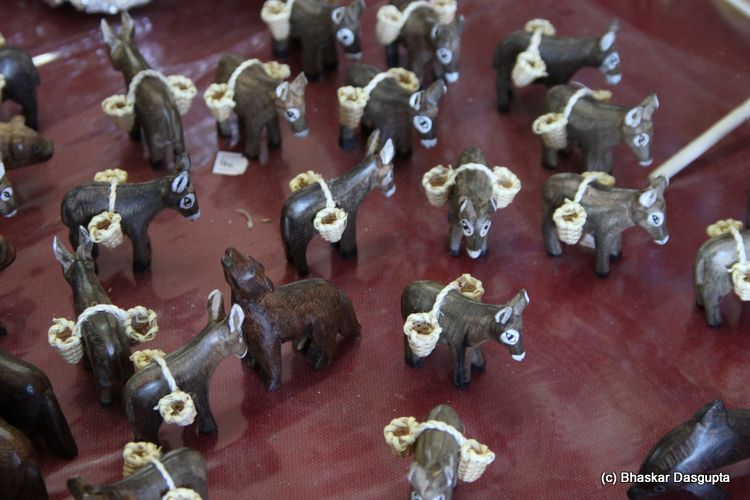
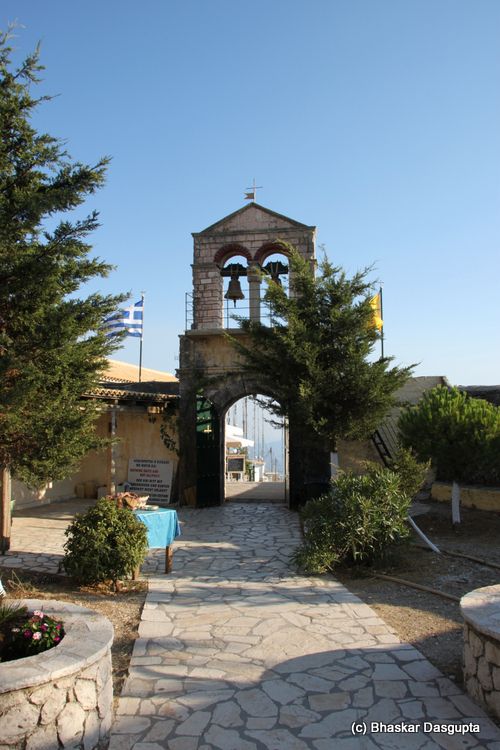
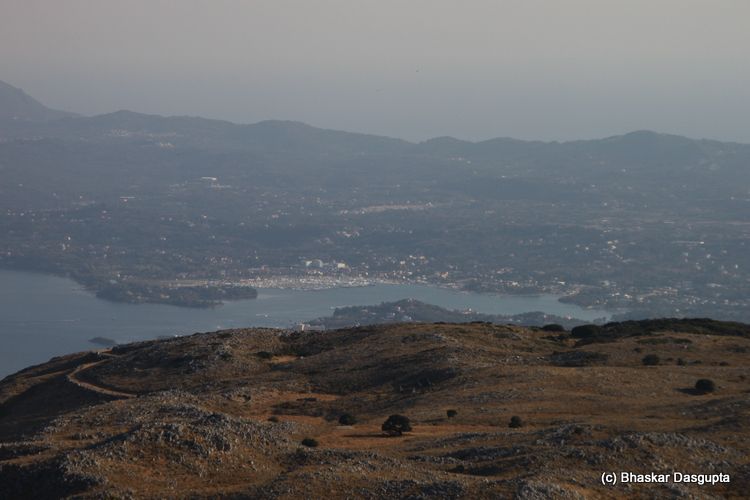
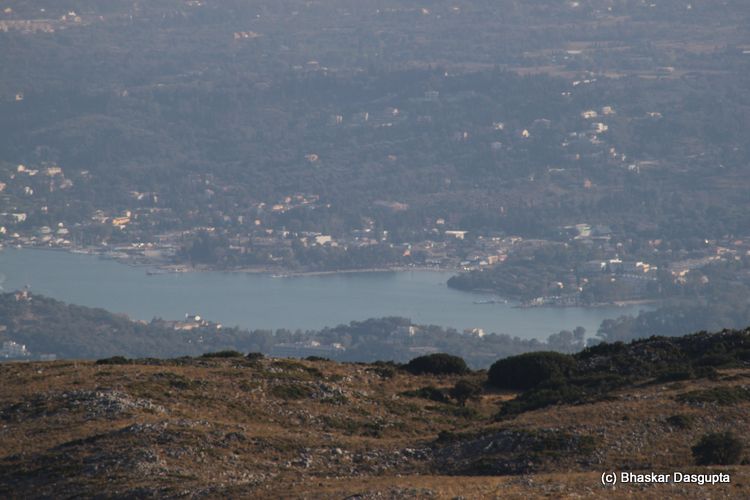
No comments:
Post a Comment